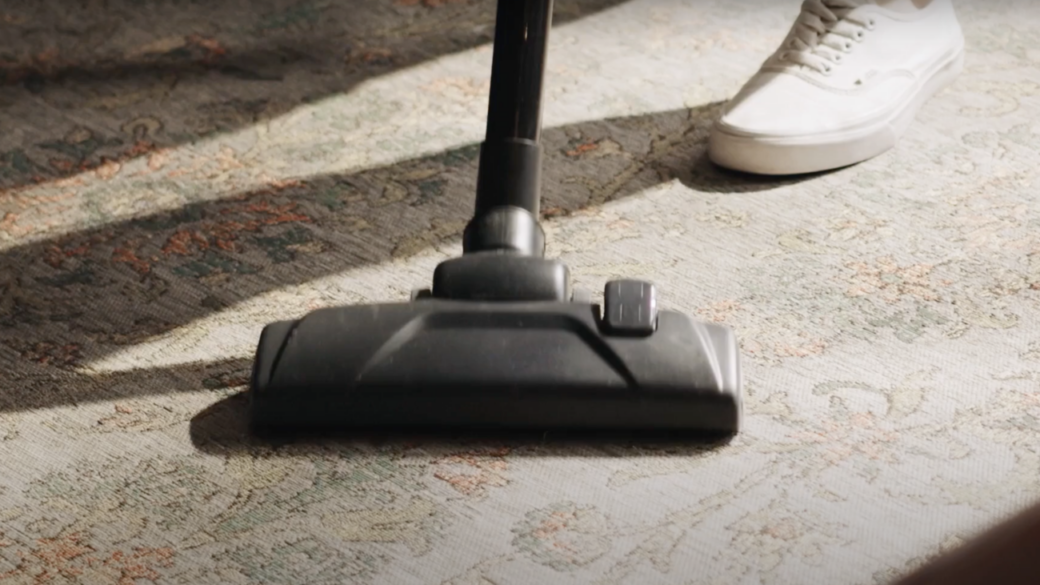Landlord Didn’t Clean Apartment Before I Moved in
The experience of moving into a new apartment should be exciting and revitalizing, but it may be very disappointing to find that the landlord neglected to clean the place before you arrived. But what happens when landlord didn’t clean the apartment before you moved in? Here’s what to do!
In this post, we’ll discuss what to do in this circumstance, how to defend yourself as a tenant, and how to avoid such problems in the future. In order to help you through this process and make the most of your new living situation, we will give you specific instructions, examples, and extensive information.
Want to know if your landlord can look in your closet during inspections? Read this post.
Document the Condition of the Apartment
Make sure to take pictures of the apartment’s condition before you begin unpacking or cleaning. This can be used as proof in the event that you need to engage in negotiations with your landlord or subsequently file a lawsuit [1].
In addition to assisting you in demonstrating the property’s current state, thorough documentation will cover you against inaccurate accusations of neglect or damage.
Capture High-Resolution Photos and Videos
Take detailed high-resolution videos and pictures of every room in the apartment, paying special attention to any areas that are exceptionally dusty or damaged. Take pictures from various perspectives and up close to problematic points to give a complete picture of the circumstance. If conflicts arise, your case will be stronger as you will have more visual proof.
Taking photos and videos of your apartment as soon as you move in is essential advice that we give to our clients. Without this, you will struggle to claim that the habitability of the property was not up to the agreed standard.
Five important things you must take photos of as soon as you move in are the carpets/flooring, windows, nail holes, the inside of your fridge, and the exterior of the property [2]
Timestamp Your Images
Make sure these photos have a timestamp by using the digital camera’s time-stamp feature, incorporating a smartphone in the shot or a newspaper. Timestamps give your proof more credibility by confirming the date when the photos have been taken, which might be important in court or in negotiations with your landlord [2].
Time-stamping these images is extremely important, as this is the evidence you need to show the images and videos you have as evidence were taken on the same day prior to you moving in. Without these timestamps, the landlord may argue that the damage wasn’t there when you moved in.
Written Documentation
Think about documenting the state of the unit in writing in addition to using visual proof. Describe the difficulties you faced, such as any damages, dirt or debris and make a note of the problematic spaces in the flat.
In addition to your pictures and videos, this written documentation can give a more comprehensive description of the incident.
Enlist a Witness
It might help your case if a family member or friend provides proof to the condition of the residence. Your allegations can be supported by a neutral third party witness who can also give an opinion on the state of the unit. If at all acceptable, have your witness sign a statement attesting to what they saw to strengthen your documentation.
We recommend that all of our clients do this when moving into their new rental property. If claims are taken further, it can be difficult when it’s just your word against your landlords. Whereas if you can have a neutral third party on your side, it can give you a huge advantage of the court ruling in your favor.
Communicate with Your Landlord
You should get in touch with your landlord after taking pictures of the apartment’s condition. Be assertive, factual, and professional in all of your communications. Give them a brief explanation of the situation and the available proof. Ask them to clean the flat themselves or to reimburse you the money you spent on a cleaning company. In certain circumstances, it’s possible that the landlord was unaware of the problem and they’ll be eager to swiftly resolve it.
For instance, you may send the following email:
Subject: Request for Cleaning – Apartment at 123 Main Street
Dear [Landlord’s Name],
I hope this email finds you well. I’m writing to let you know that on [move-in date], there was no cleaning done before I moved into the flat at 123 Main Street. I’ve included pictures and videos that show the property in its current condition.
As a renter, I anticipate moving into a tidy, well-maintained flat. Please either clean the flat yourself or reimburse me for the expense of hiring a cleaning service.
I anticipate hearing from you as soon as possible.
Sincerely,
[Your Name]
Know Your Rights as a Tenant
Familiarize Yourself with Local Landlord-Tenant Laws
When it comes to the state of the rental property they are renting, tenants have specific rights. Given that local landlord-tenant rules and regulations differ from state to state, it is important that you get familiar with them. To understand your landlord’s obligations and your rights as a tenant, research the laws and regulations that apply in your state.
For example, those of you that live in Washington state will be happy to know that you only need to leave the premises in the same condition you found it in [3]. This means if your landlord didn’t clean the apartment before you moved in, you don’t have to clean the apartment when you move out.
Normally, you may access this information through local legal aid organizations or the website of your state government. Something that your landlord doesn’t want you to know, is you don’t need to hire a cleaner at the end of your tenancy.
However, if you don’t clean your apartment when you move out, you could risk losing your security deposit.
The Implied Warranty of Habitability
In most states, the “implied warranty of habitability” requires landlords to offer a tidy and livable place. According to this legal principle, landlords are required to keep their rental homes clean, safe, and suitable for occupancy. Tenants may be entitled to legal action or other remedies if they fail to adhere to these criteria.
For example, if you move into an apartment which has a clogged drain, this is something that wasn’t your fault, therefore your landlord is responsible for paying to fix it.
Legal Action and Remedies
You may have a number of choices if your landlord won’t fix the problem, including:
- Withholding rent: Tenants may withhold rent in several states until the landlord resolves the habitability issue [4]. Before attempting this, be careful to research the rules in your state and adhere to any necessary regulations, such as giving your landlord written notice.
- Repair and deduct: You might be allowed to take care of any required maintenance or cleaning yourself, and then deduct the expenses from your rent, depending on the rules in your state. Make sure to keep track of all your spending, and let your landlord know in advance.
- Breaking the lease without penalty: You might be entitled to break your lease without paying a penalty in extreme circumstances if the landlord fails to offer a livable living place. If you want to know if this is a good choice for you, speak with a lawyer or a tenant advocacy group in your area.
- Pursuing legal action: If your landlord doesn’t fix the issue, think about filing a lawsuit. In order to explore your alternatives and the potential outcomes of your case, speak with a legal aid organization or a lawyer.
Example: California’s Implied Warranty of Habitability
For instance, under the “implied warranty of habitability,” landlords in California are obligated by law to offer a tidy and livable living area. You can seek legal action or other remedies, such as withholding rent or ending the lease without penalty, if your landlord doesn’t comply with these rules [5].
You may protect yourself from unhealthy living conditions while holding your landlord responsible for their duties by being aware of your rights as a tenant and proactive about cleaning up your flat.
Take Matters into Your Own Hands
You can choose to clean the flat yourself or hire an experienced cleaning agency if your landlord declines to do the cleaning or compensate you for the expense of cleaning. Follow these procedures to deduct these expenses from your upcoming rent payment:
Document your expenses: Keep all supporting documents and invoices for the cleaning costs. This includes receipts for the cleaning supplies you bought or bills from cleaning companies.
Notify your landlord: Inform your landlord that you want to deduct the cleaning expenses from your rent before doing so. Give them copies of the receipts and supporting paperwork and explain the justification for the deduction. You can either send an email or a letter. For instance:
Subject: Deducting Cleaning Expenses from Rent – Apartment at 123 Main Street
Dear [Landlord’s Name],
We already discussed the fact that when I moved in on [move-in date], the flat at 123 Main Street wasn’t cleaned. In order to create a livable space, I’ve subsequently done the apartment’s cleaning myself I hired a professional cleaning service.
I have copies of the invoices and other paperwork for these cleaning costs, which come to $[amount] attached. As per our earlier correspondence and in compliance with [local/state legislation or lease agreement provision], I will be subtracting this sum from my upcoming rent payment, which is due on [due date].
I value your understanding in this subject and am looking forward to our ongoing harmonious relationship.
Sincerely,
[Your Name]
Our clients have had success when structuring their letter as we recommended, as it gives the landlord no reason to object to your claims. As long as you are adhering to your state’s law, they will likely not want to take the matter any further.
Deduct the cleaning costs: You should proceed to deduct the verified cleaning costs from your upcoming rent payment after alerting your landlord. Make sure you promptly pay the updated amount, and preserve a record of it.
You will have a transparent paper trail proving your attempts to fix the problem and the basis for the deduction if you take these actions. If your landlord decides to take legal action to claim the withheld amount, you’ll have a lot of evidence to back up your argument that the landlord didn’t provide a clean flat when you moved in, making it unlikely that they would win in court.
Prevent Future Issues
Consider inserting specific clauses on the property’s condition and cleanliness in your lease agreement to avoid such problems in the future. So, what happens when your landlord didn’t clean the apartment before you moved in?
You may, for instance, ask the landlord to hire a cleaning company before your move-in date or insert an agreement specifying that the apartment must be in good condition when you move in.
In the end, having to deal with a dirty apartment when you first move in can be unpleasant and demotivating, but by taking the actions suggested in this article, you can resolve the issue and safeguard your rights as a tenant. Always take pictures of the apartment’s condition, speak with your landlord in a professional and forceful manner, be aware of your rights under local landlord-tenant legislation, and, if necessary, think about taking matters into your own hands.
Being knowledgeable and proactive can help you make sure that moving into your new apartment meets your criteria for cleanliness, comfort, and quality, allowing you to enjoy your new place.
Do you have other problems with your place? Check out this article which gives you 10 reasons why your apartment is so hot.
People Also Read
Tenant Relocation Due to Mold: What You Need to Know


